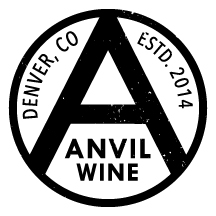J.B. Becker
Rheingau
These wines taste like nothing else coming out of the Rheingau (or most anywhere for that matter). "HaJo", as his friend call him, will get up in the morning, go into his vineyards, and make the kinds of wines he wants to make. And that’s about it. They are unflaggingly honest and present a vocabulary that few white wines can match; dried earth and rocks, vaguely subterranean, with a savory, briny, smoky atmosphere that slowly reveals fine layers of bright citrus. They flaunt a rather prominent acidity that recalls the more nervy wines of the Mosel, Saar, and Ruwer, though there is a weight, a density, a mysteriousness that speaks of the Rheingau.
How exactly all this comes together is up for grabs. If there is any grand system here, it is inscrutable. Consider on the one hand, Becker's farming is exclusively organic. On the other hand, this rather important fact is mentioned exactly nowhere at the estate. Becker believes the Rheingau has been particularly devastated by the decades of commercial agriculture; he says it took him many years to bring back to life a healthy, diverse population of yeasts in the vineyards and the cellars. Thus, he is a strong advocate of wild-yeast fermentations. This puts this graying statesman of German winemaking right next to the hip, new generation of young German winemakers. He ferments in pressurized tanks, preferring a quick, warmer fermentation. Then he racks the juice into the traditional barrels of the Rheingau for at least two years of barrel age before bottling. Even with this very long élevage, Becker seems to release wines willy-nilly, which is why we are able to offer wines going back to the '80s today. The wines all have enormous aging potential, but even a couple of years in bottle unlocks their soul. These are Rieslings that make no concessions to modernity or to fashion, and are defiantly old school. They are living fossils, the likes of which we may never see again.
The estate was founded in 1893 by HaJo’s grandfather, Jean Baptiste Becker. He was a cooper and began accumulating some vineyards and voila, he started a winery. J.B. Becker died in 1944 at the age of 73. So the story goes, he saw a young child drowning in the Rhein River, yet even at his advanced age he jumped in, saved the child, then had a heart attack and died. There is a moving letter about the incident in the tasting room. Suffice it to say HaJo comes from a long line of bad asses. Becker’s father Josef grew the estate and in the 1930s befriended a young importer by the name of Frank Schoonmaker. They became good friends and Becker acted as Schoonmaker’s consultant and consolidator for some time.
Hajo himself went to Geisenheim in the 1960s and did all that proper education stuff but as he tells it, his great revelation came in the cellars of Schloss Eltz in the early 1960s. Schloss Eltz, it should be said, made some of the greatest wines of the Rheingau from the 1950s through the 70s. The wines are just epic, if rather unknown these days because the estate sold its land in the 1980s. In any event, Becker was studying with the cellar master at Eltz, a gentleman by the name of Hermann Neuser, in the early 1960s and this is where he first began tasting dry Rieslings, fresh from the cask in the cellar… before any süssreserve was added. The wines were a revelation to him and when he took over the family estate with vintage 1971, he began focusing heavily on dry Rieslings.

